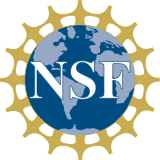 Intelligent and Scalable Systems
Intelligent and Scalable Systems
 An NSF-Sponsored REU Site (CNS-2051037)
2021-2024
An NSF-Sponsored REU Site (CNS-2051037)
2021-2024
We are now accepting applications for summer 2024!
The Intelligent and Scalable Systems REU Site, sponsored by the National Science Foundation and hosted by the Computer Science and Engineering Department at Lehigh University, provides undergraduate students from across the country with an opportunity to learn how to harness the incredible potential of machine learning and the unprecedented power of modern parallel compute resources, and to use their knowledge and experience to invent new systems and algorithms that are infused with intelligence and capable of solving pressing societal problems.
Our REU site provides every student with a deliberate program of research and study, and pairs each student with a dedicated faculty mentor. In addition, we have prepared a series of seminars and tutorials designed to ensure that every participant will be ready to collaborate, knowledgeable about the key concepts and technologies in modern intelligent and scalable systems, and inspired to pursue further education and life-long careers in Computer Science.
Modern advances in machine learning, especially the use of parallel computational resources to train algorithms on large data sets, is enabling revolutions in many sectors of our society and our economy. To sustain this revolution, our REU Site is focused on research into fundamental topics in both machine learning and scalable computer systems, such as new algorithms for machine learning, new approaches to privacy preservation, and new techniques for increasing the performance of parallel programs. We also support application-focused research, with an emphasis on creating solutions to hard problems in both research and society.
Through this REU Site, students will have the opportunity to pursue research in a broad array of areas. Below is a list of topics offered in past years. However, this list is by no means exhaustive.
- A Solution to Computer Vision Challenges in Underwater Navigation
- Benchmarking Blockchains with BlockBench v3
- City-Focused Air Quality Inference Learning with Transfer Learning
- Conjugate Gradient and Minimum residuals for Multi-Objective Optimization
- Fair Machine Learning and Multi-Objective Optimization
- Hieroglyphic Recognition
- Human Assessment of Image Labeling
- Iterative Solvers and Recycling Strategies for Solving Linear Systems
- Machine Learning for Meta-Reasoning
- Optimizing zk-SNARK Proof Generation with Distributed Cloud Computing
- Passive Follower Approach for Tensile Blimps
- Path Guidance in First Order Logic Reasoning
- Perception for Robotic Cars
- A Simplified RDMA Programming Model with Implicit Caching
- Specialized and Verifiable Document Extraction with LLMs
- User Behavior-Inspired Management System for Electric Micromobility
Projects to be investigated this year will be determined through a combination of faculty and student interests. For broader research areas, and for a list of potential advisors for the topics that interest you most, please see our faculty research interests.
- Stipend: TBD. In 2023, Each student was be paid a stipend of $6,500 for the 10-week program, plus a credit for food expenses of $1,500.
- Dates: June 3, 2024 — August 9, 2024. Barring a resurgence of COVID-related restrictions, we expect to run the program in-person at Lehigh University in Bethlehem PA. Participants will be expected to be present for the entire 10-week program.
- Housing: Each student enrolled in the program will be housed free of charge on the campus of Lehigh University. There is a residential component to the program, so participants may not opt out of the housing to live elsewhere.
- Travel: Each student will be able to request up to $750 in reimbursement for travel to and from Lehigh University, Bethlehem, PA for the program. Additional funding is available to support attendance at conferences to present research results.
- Accommodations: Lehigh University is committed to ensuring that no individual with a disability is excluded, or denied access because of the absence of auxiliary aids or services. If you plan to request specific dietary needs, or programmatic accommodations, (sign language interpreter, alternate format for print information), or if you use a wheelchair or other mobility assistive device, please notify the program coordinator prior to the event (at least three weeks in advance is suggested).
We welcome applications from undergraduate students who are US citizens and permanent residents. We are particularly interested in applicants who come from groups that are traditionally underrepresented in computer science and engineering (low-income, ethnic and racial minorities, first generation college students, and women). If you are a member of one or more of these groups, please highlight this in your personal statement.
Note that applicants must be US citizens or permanent residents to apply. Students must also be currently enrolled in an undergraduate college or university. High school students or college students that have graduated before this experience are not eligible.
To apply, please visit the NSF ETAP Site and click "Apply Now". In addition to filling out a form, you will be asked to provide the following information:
- Your current CV or resume.
- Your official academic transcripts. If any courses that you will complete prior to the summer are not included on the transcripts, please mention them in your personal statement.
- A 1-2 page personal statement that highlights your motivation and qualifications. It should also identify your research areas of interest. (The more areas of interest you mention, the more likely we are to find a match to an advisor.)
- 1-2 recommendation letters. Update: If your recommenders are having trouble submitting their letters through the ETAP site, they can email them directly to issreu@cse.lehigh.edu.
Any questions about the REU Site can be sent to Professor Michael Spear <spear@lehigh.edu>.
Review of applications will begin on February 15th, and will continue until all available positions are filled. Please be sure to apply before February 15th to ensure that your application receives full consideration.